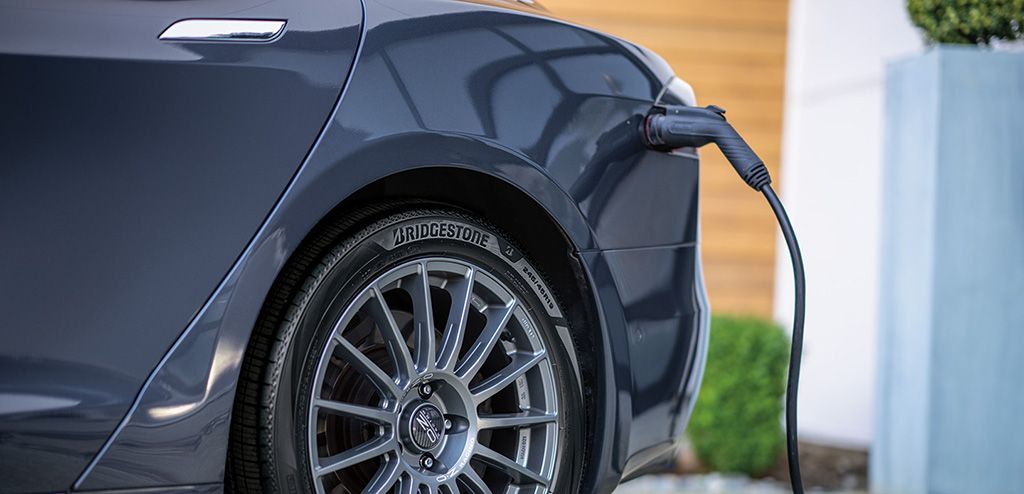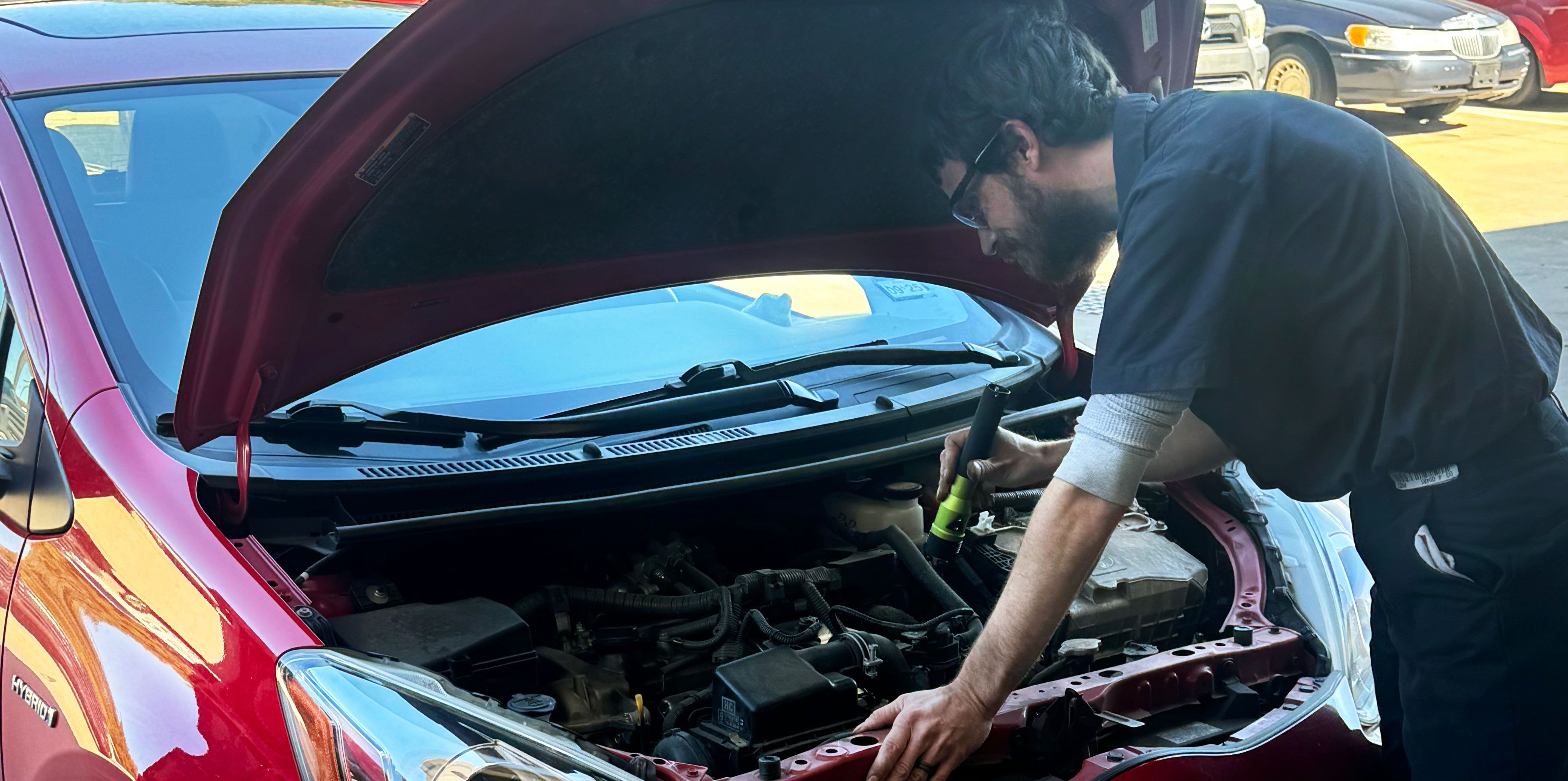Electric vehicles (EVs) and hybrids are taking to the roads in droves, and despite their growing popularity, several myths about electric vehicles and hybrids persist. To help mitigate this, we asked Matt Zimmerman, our resident EV and hybrid expert and a lead technician at Firestone Complete Auto Care, to confirm or debunk some myths surrounding these vehicles. Matt takes a moment to address these misconceptions:
Myth 1: EVs and Hybrids Can Only Be Serviced by Dealers or Specialized Shops — False
Some drivers believe that hybrid and electric vehicles can only be serviced at dealerships. “That just isn’t true." Matt clarifies. Contrary to popular belief, EVs and hybrids don't always require a dealer’s touch. Firestone Complete Auto Care, for example, offers comprehensive EV and hybrid maintenance. Services range from routine checkups like tire rotations and alignments to suspension inspections and brake repairs. At select locations, our technicians are also able to do more intensive work like high-voltage battery diagnostics and repair.
Matt points out that as EV and hybrid knowledge expands in the automotive industry, so do the skills of trusted service professionals. This means that many aspects of your EV's maintenance are already available locally.
In short, having your hybrid or electric vehicle serviced by a dealer or specialized shop is not the only route to efficient maintenance.
Myth 2: EV Battery Maintenance is Not Necessary — False
A common misconception is that EV batteries are maintenance-free. "Some people believe that you just have to charge [EVs or hybrids] up and you go," says Matt, but this is just another untrue myth.
Along with other electric vehicle maintenance services, EVs also need high-voltage system diagnostics and repairs. This might include software updates, battery cooling system checks, and more. Like anything else, EVs and hybrids can experience wear over time, and regular high-voltage battery pack checkups can detect issues early, supporting your vehicle's optimal efficiency over time.
So, if you're wondering, "Do EV cars need maintenance?"—batteries or otherwise—the answer is yes. Stay up to date on the services your EV or hybrid needs by checking out your manufacturer's suggested maintenance schedule. If your vehicle requires battery service or you notice any other issues, our stores are hybrid and electric vehicle service centers. Just be sure to contact your nearest Firestone Complete Auto Care to ensure the specific service you're looking for is available in your area.
Myth 3: EVs Only Have One Moving Part — False
"There's multiple moving components [in an EV]" Matt counters with a chuckle. "Even in the drive motor itself, the stator and the rotor are both moving. So, right inside of just one component, you have multiple components that are moving."
Many believe EVs consist solely of a motor with few or no moving parts. While it’s true that EVs generally have fewer parts than traditional combustion engines, they still have multiple components like axles, wheels, cooling pumps, and more.
Need we say more?
Myth 4: EVs are Heavier Than Standard Gas Vehicles — True
Surprisingly, this myth is actually not a myth—it's true. EVs typically weigh more than their gas counterparts, largely due to their high-voltage battery packs. Matt emphasizes this point by highlighting that some EVs, though the same size as a standard Honda Civic, are almost twice the weight.
"These [EV and hybrid] battery packs are heavy! Some of these [vehicles] are 6,000-7,000 lbs, and that's really heavy for a car."
However, as battery technology improves, this weight disparagement may change. For now, "those battery packs can be up to 30%, if not more, of the vehicle weight."
Myth 5: EVs Don't Have Conventional Brakes — False
Some assume EVs lack conventional brakes due to regenerative braking systems. But Matt clarifies that EVs, while equipped with regenerative braking to capture energy, will still have traditional brake pads and rotors.
In panic-stop situations, for example, regenerative braking may not occur. There will be no braking assist from the drive motor. In these situations, hydraulic ABS braking will likely take over. While braking in an EV is typically a combination of blended braking, panic stops are often purely hydraulic just like a traditional brake system.
Myth 6: EVs and Hybrids Are Always Difficult to Work On — False
While there is some stigma around the complexities of servicing an electric or hybrid vehicle, Matt emphasizes that with a little training, these types of vehicles are not as difficult to work on as some might think.
EV maintenance services don't always involve engaging with the high-voltage system—which can be the most complex part to work on. Many times, the care for these vehicles involves less complicated tasks, like a cooling system drain and fill. With this service, all you have to do is, "drain it, fill it back up, hook up the scan tool, and run the electronic coolant pump until it finishes burping the system." Matt says simply.
It seems that a lot of EV and hybrid maintenance care is pretty straightforward for a professional technician.
Get EV and Hybrid Car Care Services at Firestone Complete Auto Care
Firestone Complete Auto Care is committed to offering comprehensive care tailored to the needs of EV and hybrid owners. Whether you're seeking routine maintenance or specialized services, qualified technicians like Matt are here to help you navigate your vehicle's needs efficiently and effectively. Schedule an appointment at your local Firestone Complete Auto Care today and experience the difference for yourself!


